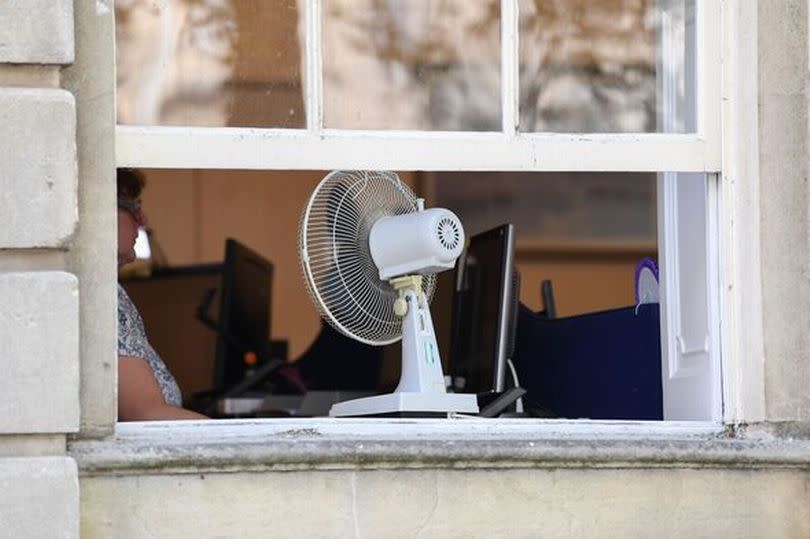Why you shouldn't use a fan during a UK heatwave and what to do instead

As the UK braces for sweltering 31C temperatures this week, experts are cautioning against using fans during the heatwave.
It may seem counterintuitive, but there's a surprising reason why fans aren't the solution when the heat becomes unbearable. British homes, due to our moderate climate and cold winters, are designed to retain heat.
The heavy-duty bricks, insulation, double or even triple glazing, and thick roof tiles that keep us warm on frosty December mornings can make our homes uncomfortably hot during a humid heatwave. This is particularly challenging as most UK homes lack air conditioning units.
Read more:
Keep up to date with all the latest breaking news and top stories from Hull with our free newsletter
Get the headlines direct to your phone by joining us on WhatsApp
The mercury is expected to rise into the thirties in some parts of the country, although this hot spell is predicted to be brief with cooler weather forecasted for Thursday. The UK Health Security Agency (UKHSA) has issued yellow heat health alerts across most of England, while NHS leaders warn of 'major disruption' due to the heatwave, reports the Express.
However, a fan isn't the solution. Using a fan during a heatwave can actually increase the temperature in your room.
According to the Government's own heatwave plan, electric fans are only effective in temperatures under 35C. So, in a severe heatwave, they do nothing to alleviate discomfort.
Fans don't actually reduce the room's temperature; they merely circulate the air. While you might feel slightly cooler with a fan blowing in your direction, the room remains as hot as before, potentially creating a deceptive sense of comfort if you rely on a fan instead of properly hydrating or adequately cooling the room.
The most effective approach is to open as many windows as possible, attempt to shade windows, and maintain coolness through regular water intake or even cold showers, while avoiding direct sunlight.
The government's own advice further states: "Climate change is already causing warmer temperatures in the UK. All of the warmest years on record in the UK have occurred since 2002, and in July 2022 temperatures exceeded 40C for the first time on record. It is estimated that 2,803 people aged 65 years and over died due to the heat in England in 2022, and it is predicted that the number of heat-related deaths per year may triple by 2050."
"Hot weather can increase the risk of heart attack, stroke, lung problems and other diseases. Older people, babies and young children are more likely to be unwell from hot weather because their bodies are less able to regulate temperature. People with underlying medical conditions can also be vulnerable to the effects of hot weather."
"Many of the harms linked to heat exposure are preventable if a few simple actions are taken. During the summer, UKHSA will work with the Met Office to issue alerts alongside the weather forecast if the weather is so hot that it has the potential to affect people's health, and will help you to take steps to protect yourself and others."

 Yahoo News
Yahoo News 
